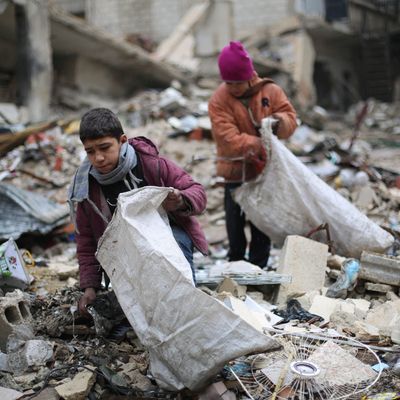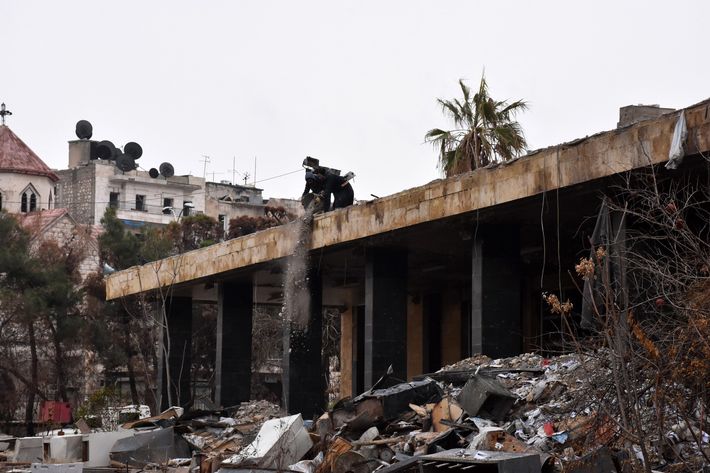
A nationwide cease-fire deal will go into effect in Syria at midnight between the Syrian government and rebel groups. Russia, which is allied with President Bashar al-Assad and the Syrian government, and Turkey, which had been supporting the rebels, both backed the truce, which comes a week after a fitful evacuation in Aleppo ended and brought the major city back under the control of Assad.
Peace talks will follow the cease-fire — if it holds. Past nationwide truces, hammered out between Russia and the United States, have quickly collapsed. But the Americans did not get a seat at the negotiating table this time around, left out as Turkey, Russian, and Iran (which also backs Assad) worked out the terms of the deal. Beyond that, circumstances have changed drastically in the past weeks: Assad and his allies’ bombardment — and eventual recapture of — Aleppo dealt a decisive blow to the already depleted and fractured Syrian opposition.

The Syrian government and certain Syrian rebel groups — about 60,000 fighters — signed onto the deal. Jihadist organizations such as ISIS — which still controls territory in Syria and Iraq — al Qaeda affiliates, and other radical insurgent groups are not party to the agreement, so it’s unlikely that fighting will completely stop in the beleaguered country.
Syrian state-run media said the deal had been reached after pro-government forces’ “victories and advances.” Russian president Vladimir Putin was a bit more circumspect, calling the agreement “fragile,” adding that it consisted of three components: the actual cease-fire between the rebels and the Syrian army, the terms to monitor the truce, and the plan to start peace talks in Astana, Kazakhstan, though no specific date was given. Putin also signaled a draw-down of Russia’s military commitment in Syria, though he said the Kremlin would maintain its support of Assad and its fight against terrorism.
This cease-fire likely puts Assad one step closer to keeping power for good, and, in turn, appears to mark a win for Russia, which, in addition to its burgeoning friendship with Turkey, has now brokered a peace deal without the United States and major western powers — although a U.S. invitation might be forthcoming in a few weeks. “I would also like to express my hope that when the administration of Donald Trump assumes its responsibilities,” said Russian foreign minister Sergey V. Lavrov, “they may also join these efforts in order to work toward this goal in a friendly and collective manner.”





























